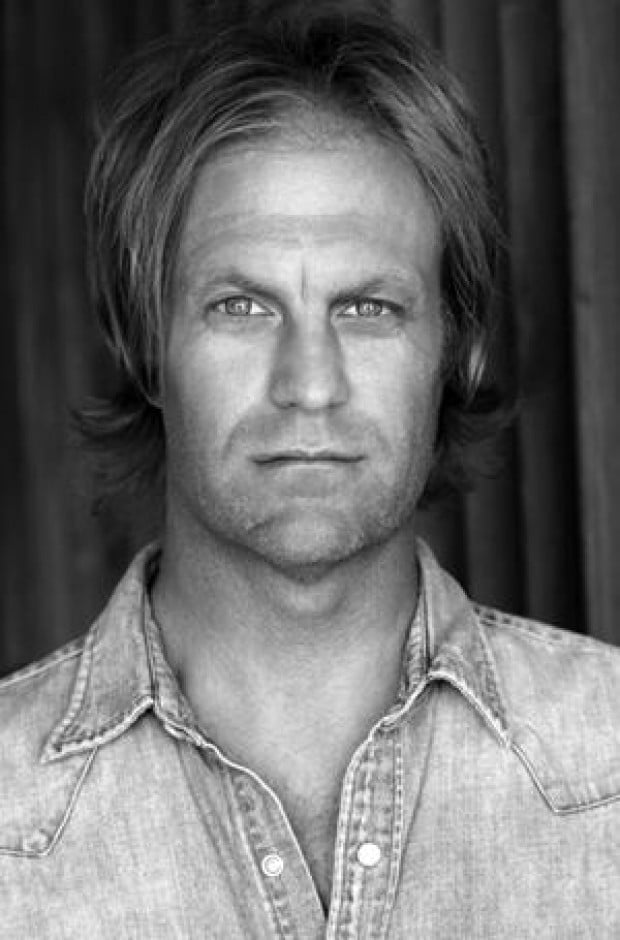“Crazy for the Storm: A Memoir of Survival,” By Norm Ollestad, 227 p., HarperCollins
By Laura Tate / Editor
Norman Ollestad’s memoir on his life growing up under the strong influence of his father is a throwback to a Malibu/Topanga lifestyle in the seventies that has since washed away. Only the occasional surfacing of old pilings that were once homes on the shores of Topanga State Beach are evidence that the place was once a vibrant community of surfers, hippies and families with kids, who were able to run wild in the surf and in the canyons just across the highway.
“Crazy for The Storm” is also a wrenching account of a son’s unsinkable admiration and love for his father, and the plane crash that he survives at age 11, but which his father, the pilot and his father’s girlfriend do not.
In an oscillating story format, between his childhood and after the crash as he struggled down a snow-covered mountainside, Ollestad depicts the long-gone ’70s Malibu/Topanga lifestyle in vivid, emotional detail as he recounts living on the beach with his mother and her boyfriend Nick, and hanging out at his dad’s in Topanga Canyon with the comings and goings of Norm Sr.s’ girlfriend Sandra Cressman.
Ollestad clearly delineates his relationships: his mother is portrayed as a somewhat ineffective nurturer yet still caring, who is dominated by a bullying boyfriend. Nick, the boyfriend, also tries to control Ollestad as a way of compensating for his own deficiencies, made even worse by his drinking.
His father is described in a more positive light, yet Ollestad does not flinch from writing about how his father pushed him beyond what the younger Ollestad sometimes believed were his limits, whether it was in surfing, skiing, or in submitting him to dangers while traveling throughout the jungles of Mexico. As Ollestad writes, some of the things his father (who was a former FBI agent before he quit and wrote a book about the experience) put him through would have made him declared an unfit parent in today’s world. However, it is exactly this trait of his father’s, the unrelenting push to do better, to take chances, take risks, that Ollestad credits to his being able to perilously descend off the top of an 8,600-foot, snow-covered mountain during a blizzard-and survive.
“I never gave up. My dad taught me to never give up,” young Ollestad says in a news television interview (posted on Ollestad’s Web site) days after his ordeal.
The author painstakingly describes how, after he came to terms with the fact his father was dead, he tried to help Cressman climb down the icy mountain, bracing her with his shoulders and hands. Her arm had been broken. Writing about it almost 20 years later, Ollestad recalls in aching detail about the guilt he felt when Cressman lost her footing and hurtled past him to her death. His description of how, inch by inch, with his feet and hands numb and his knuckles scraped bare, he fought mentally and physically to keep going despite losing his dad, and then Cressman, is painful to read. The back and forth in time of his storytelling puts the reader on edge; the wild stories of his adventures with his father-escaping the gunfire of federales in Mexico, surfing monumental waves-lulls the reader, only to come back to the heartbreaking facts. A young boy has lost his father-his idol.
Ollestad is blunt in revealing his feelings about the people in his life growing up-those he despised and those he loved, and the one thing that he ingrains best in the reader is his powerful love for his father, even while resenting him for making him overcome his fear of danger and the unknown.
Ollestad uses simple, short sentences to describe his struggle to come to terms with the loss of his father. After a fight with Nick he escapes to the ocean to vent his pain: “When I hit the water my skin stung as if cakes of dried mud wear tearing off of me. Now there was nothing buffering me from the pain … I was not okay like I wanted to believe. I was sad. I was angry. And it made me feel ugly and alone and cruel sometimes.”
As Ollestad has credited his father’s relentless push for him to excel at all he did to his survival of the plane crash, his father’s life lessons in growing up, the travels and priceless experiences they had together helped the younger Ollestad to come to terms with life without his dad.
“Off the point at Topanga Beach I stared into the eye of a distant wave. Somewhere in the oval opening I grasped what Dad had always tried to make me see. There is more to life than just surviving it. Inside each turbulence there is a calm-a sliver of light buried in the darkness.”
“Crazy for the Storm” (ecco, HarperCollins Publishers) is available at Diesel, A Bookstore and online at www.crazyforthestorm.com

